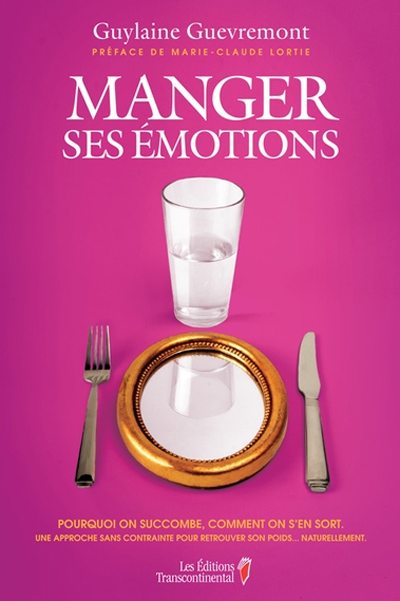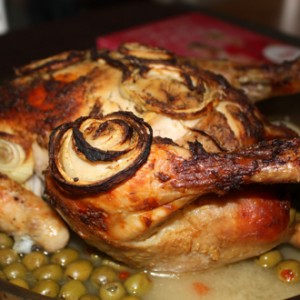On the French side of this blog, I tell the story of how I came to copyedit a new book on how to stop eating your emotions by Québec nutritionist Guylaine Guevremont. Since it’s only available in French, if you know the language, you may want to read the article here.
Central to Guevremont’s premise is the body’s capacity to self-regulate itself and maintain a healthy weight that is not dictated by, and may be quite removed from, the Body Mass Index which the author sees no value to beyond statistics. Genetics, lifestyle and age skew our body weight up or down, and no magic formula should put us in the red. Are you feeling strong, healthy, attractive? Therein lies positive self-image.
If statistics are good at one thing, it’s telling us that diets don’t work long-term. Even if you lose the weight, over the following months or years, you will find the weight creeping back on and feel like an abject failure most times. Then, of course, you go back on the next diet, you know, the one that will work this time… Guevremont says enough already!
How reassuring it seems to blend yourself in the mainstream and current thinking. You feel less lonely and more in sync with the world we live in. This sense of belonging beneficial to our self-esteem leads us to underestimate the psychological and sometimes physical price to pay when one tries to maintain a certain weight at the cost of constant effort. Failure to do so leads us to perceive ourselves as dysfunctional and incapable of losing weight. It’s almost easier to hate ourselves than to question norms and stereotypes.
U.S. studies show that 90% of women are concerned about their weight and that 38% with a healthy body weight think they need to shed pounds. That’s more than one third of women who are fighting their natural body shape to follow fashion diktats. I don’t know about you but I find that scary.
Do you eat your emotions?
More often than not, our body’s ability to maintain its natural weight is impeded by the fact many of us eat our emotions. We eat, uncontrollably or not, to a lesser or greater extent, whenever we are tired, stressed, sad, angry, etc. And we do so mostly at night, when we come back from work and the day’s pressures weigh us down. Rather than deal with the emotion(s) trying to talk to us, we numb them with food.
Yet Guevremont reminds us that “emotions serve as our internal compass. They allow us to make enlightened choices so that we may lead a fulfilling life on every level: social, professional, within our family and in our couple. Emotions point the way to wisdom by informing us about our ability to handle situations or not, to accept or refuse them.”
So how to acknowledge our emotions instead of eating them away? Guevremont tells us:
1.We need to open ourselves to any given emotion by seeing it as an ally and not a weakness, a brake or a barrier.
2. Then we must learn to name that emotion.
We often perceive emotions in others, through their facial expression, words, what not, but don’t always take the time to pinpoint how we feel about something. And how can you listen and learn from something you are ignoring?
Among emotions listed by U.S. psychologist Paul Ekman and quoted by Guevremont are: fear, sadness, anger, disgust, joy, surprise, amusement, disdain, satisfaction, shyness, excitation, guilt, pride, relief, sensorial pleasure and shame… And I wouldn’t be surprised if you can find more by just sitting in a comfortable armchair whenever you are struggling with a particular emotion!
An exercise approach I loved
To throw light on the relationship between our emotions and the way we eat, Guevremont provides a series of exercises that conclude her book. We are asked to rehabilitate our hunger mechanism. After all, if you don’t know when you’re hungry for real, how will you know when you are “emotionally hungry”? (There are a number of Internet resources featuring exercises to heal our hunger mechanism, so Google away.)
Then, the nutritionist asks us to remain “in the moment” as we eat. God have I heard that one before! Too often, we eat in front of TV, playing on Internet, etc., almost unconscious to the quantity or quality of food we put in our mouth. She asks that readers play with their food, eat it with their eyes, savour every bite. Ultimately, she wants us to find that turning point when food starts losing its taste and appeal, because we in fact are no longer hungry. In an emotional state, we tend to keep eating way beyond this point and sabotaging ourselves.
____________________________________
Contradiction much? When studies play with our heads…
1. Fat is bad. 2. Sugar is worse. 3. Drink milk, preferably skimmed. 4. Milk is for calves and fat-free food doesn’t curb hunger anyways. 5. Train to lose weight, but training will make you hungrier. 6. Cut salt. 7. Eat more fish. 8. Careful, there’s mercury in fish. 9. Eat more fibre but remember carbs are fattening. 10. Eat more fruit, though the acid in citrus damages teeth, warn dentists. Oh boy, more professionals chiming in. No wonder we’re losing our minds…
____________________________________
A number of practical exercises follow. Guevremont has readers eating foods that make them feel guilty and trying to pinpoint their feelings when they put that fry or bite of cake into their mouth. She asks them to visualize going to the grocery store to buy food that makes them feel guilty, again and again, until the guilt plain stops. When they eat food out of anger, she makes them remember another time in their lives when they felt profoundly angry over something, tying both emotions in their minds so that they can pinpoint where the emotion ends and the sabotage begins. Finally, when the need to eat our emotions seems uncontrollable, she asks that we sit down and let that emotion build up until it’s almost screaming its message at us. Listening to this emotion, identifying it and maybe finding a solution other than eating paves the way to freedom from diet and positive body image. At last.
And you, do you eat your emotions too?











Parce que tu le recommandes, c’est certainement un excellent livre, mais ça me gosse jusqu’au fin fond des entrailles, cette notion qu’on mange ses émotions. C’est comme si manger pour le pur plaisir de goûter, déguster, savourer, manger parce qu’on AIME ça, parce que c’est bon et agréable, bon comme lire un bon livre ou regarder un bon film, on peut pas. Je mange parce que j’aime ça, pis aimer, c’est une belle émotion, j’trouve, surtout quand c’est du chocolat. Alors je vais garder ma carte privilège chez Additionnelle, continuer de brouter pour garder un certain équilibre, et continuer d’avoir du plaisir, même si j’ai pas faim! 😉
En fait, le livre parle beaucoup du plaisir de manger qu’on a évacué à tort et veut donner aux gens le goût de le retrouver justement. Par contre, quand on mange ses émotions et qu’après on se sent coupable, ce déséquilibre-là est nocif. Or, plusieurs personnes vivent ce foutu yoyo (hum, hum, bibi ici présente aurait peut-être sa carte platine, mettons). Le livre parle aussi beaucoup de la notion de minceur comme un leurre colossal. Bref, c’est de l’anti-régime à la puissance 1000%.